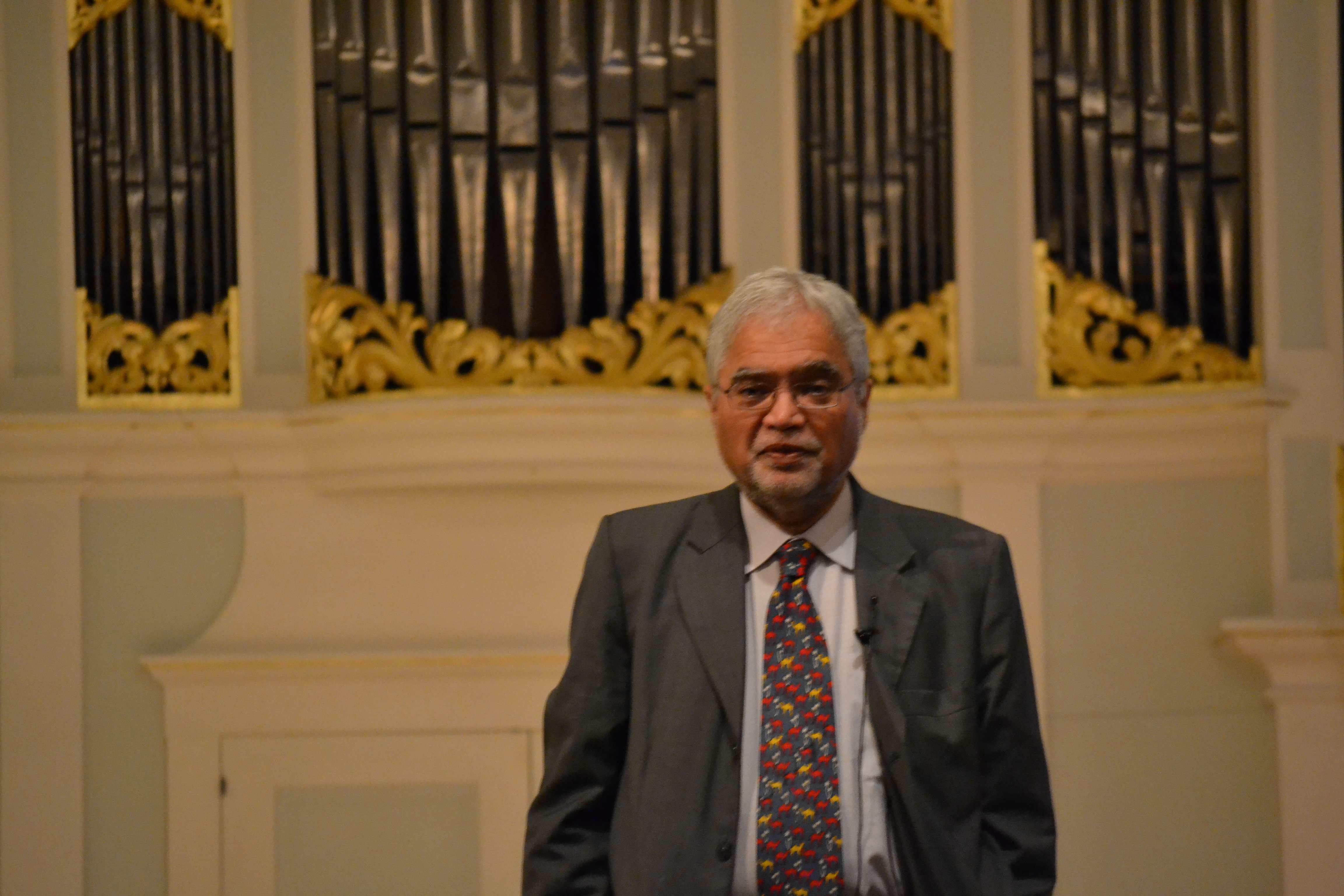
Dr. Mukesh Kapila, known as the whistle blower on the genocide in Darfur, visited Puget Sound on Nov. 20 to talk about his new book, Against the Tide of Evil.
Kapila, who currently works as a professor of Global Health and Humanitarian Affairs at the University of Manchester, was appointed the head of the United Nations in Sudan in 2003. At the time, Sudan was the UN’s biggest humanitarian mission, with a half-million-dollar budget. Kapila’s new book tells the story of how his use of the media shed light on the genocide happening in the Sudan.
Kapila spoke to students in Kilworth Chapel and, instead of lecturing, chose to ask questions in order to offer students a better understanding of obstacles he faced while working for the UN in Sudan. He opened his presentation with a video explaining the conflict in Darfur.
After the video, he began discussing the obstacles that he faced when trying to bring attention and an end to the genocide in Darfur. He began by asking the audience why he was appointed the head of the UN is Sudan. Students responded with a variety of answers, explaining the previous positions that Kapila has held working with the UN and experience in other places such as Rwanda and Sierra Leone. He responded that his appointment hinged on his ability to be neutral: “Not a white, facist, imperalist pig,” Kapila said to uproarious laughter.
He proceeded to question the audience, asking them how he found out about genocide and the events that led to his eventual cry to media to gain attention for Darfur. He then explained that his attention had been attracted by the destruction of villages in a western region of Sudan—a region called Darfur, about the size of France.
Students said that if they were in his shoes, they would want to check it out and see for themselves what was happening. That is exactly what Kapila did. After seeing the ruined villages and all of the displaced inhabitants, he investigated further. Extensive research led him to discover that all of the villages that were destroyed were composed of people of African descent, while villages that were predominately of Arab descent remained intact.
He continued to ask questions, inquiring what students would do after learning this information. The majority of the answers that followed had a trend to them: informing a superior of the issue. This is exactly what Kapila did; he notified his superiors at the UN in New York and reached out to other UN consulates in the area, including England and France. The information, however, was not new to them, and nothing was being done about it.
With no one else to turn to, Kapila turned to the media and informed them of the situation, hoping to spread awareness of the atrocities occurring in Darfur.
While the media’s influence drew attention to the cause, the genocide in Darfur continues today. According to World Without Genocide, over 480,000 people have been killed and more than 2.8 million have been displaced from their homes.
Kapila will continue his journey to end the genocide in Darfur by working with Aegis Trust for the Prevention of Crimes against Humanity. His main advice to students at his lecture was that we as humans all have a pedestal which we are on and we have the power to use it to make a difference in the world.
